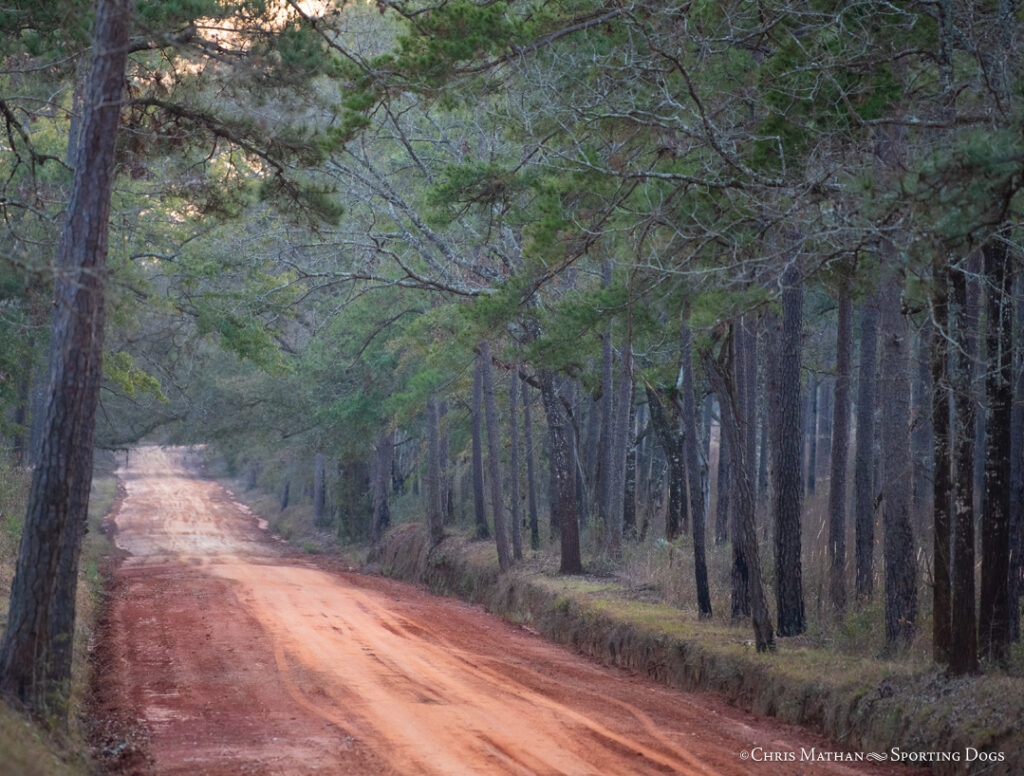When Ben Reach got the call from Randy Marsh he immediately suspected what Randy would ask his advice on. There were two clues. One was Randy’s tone of voice. The other was the general state of field trials, what with Covid and drought in the west — North and South Dakota and Montana especially, circumstances leading to trial cancellations and low entries.
Randy arrived ten minutes early, a discipline learned on the circuit where breakaways were not postponed. He was clad in the dusty uniform of his profession, denim jeans, western snaps-not-buttons shirt, blaze orange billed cap in hand with logo declaring allegiance to his dog food supplier and his name plus “Kennels,” and the ubiquitous lanyard holding a pea whistle (Ben was reminded of Big George Moreland’s saying, “You hear whistle from a handler after breakaway you know his entry’s not going anywhere.”)
Ben ushered Randy into his library-conference room where Joanne had ice, glasses and soft drinks on a side table. Randy took an offered Pepsi and sat in a captains chair across the table from Ben.
Ben enquired about Randy’s parents, old friends of Ben and Sam and owners of a pecan growing and marketing business also subject to the vagaries of weather and myriad uncontrollable market forces. Randy said they were fine.
Then Randy got down to business. His subject was the one Ben had expected.
“Mr. Ben, I’m at the end of my rope. Can’t make the nut. Two of my owners have sold their dogs to owners that took them out of my string. They were my best, two derbies and three all-age. I’ve got to find another way to make a living.”
This would be a conversation Ben had had many times before, always with different advice given and different outcomes. What advice Ben would give Randy depended on many factors, foremost the talents of the bird dog man being addressed and the opportunities available. Ben thought he might have a solution for Randy, if Randy could discipline his ultra-competitive, sometimes unruly and immature nature.
Before Ben responded to Randy, he had an epiphany which changed his planned response.
“Before I give you my advice, I would like to meet with you and your bride, and I would like Dr. Nixon to be in our meeting,” Ben said. His response to Randy’s not-unexpected career news was unplanned and, unusual for Ben, spur-of-the-moment.
Randy was taken aback, but after a moment’s hesitation said, “Sure.”
Randy’s bride was Anne Cole Marsh. She was an operating room nurse, and the opposite of Randy in personality. Sam Nixon, her family’s primary care physician, had advised her on her schooling and career path. He admired her deeply. He also knew she would welcome a career change for Randy. She was becoming anxious to have children but did not want to start with Randy engaged in so unsure a means to a livelihood.
The two old curmudgeons met the vibrant but discouraged young couple at four on Friday afternoon in Ben’s library-conference room. After enquiries by Ben and Sam about Anne’s parents which drew a happy response, Ben got down to business. He knew of a possible opportunity for Randy, but to take advantage of it Randy would need to make some changes.
This might prove difficult for Randy, Ben said. Randy had starred as a three-sport athlete in high school, leading his teams to state championships in baseball and football. He had won bird dog championships too. The opportunity Ben said might be available was as number two at Thick Pine Plantation, as assistant dog trainer and hunt manager under general manager and head dog man Fred Cole.
Ben knew Randy would likely resent being number two. Fred was sixty years old, had managed Thick Pine very competently for its owner Charles Copeland thirty years, and had Copeland’s loyalty. But Ben knew a secret that could provide Randy his key to advancement to general manager at Thick Pine, if Randy could be patient and learn from Fred the people skills that had made Fred a success.
“Your keys to advancement at Thick Pine will depend on two talents, one you have but one you do not. The talent you have is to train and develop bird dogs. The talent you lack is to manage people and yourself. Fred has this talent in spades, including the talent to please Charles Copeland. But Fred cannot train or develop bird dogs. Your success will depend on your ability — and will—to bide your time and develop Fred’s skills with people, especially with Charles Copeland. In other words, you will need to study and emulate Fred, and resist one-upping Fred.
“Fred’s age is on your side. In a few years he will want to retire, and I know from Charles Copeland—a client and friend—that Charles will accommodate Fred and replace him with someone with Fred’s ways and talents.”
“That is so,” Sam chimed in. Copeland was a patient and friend of Sam’s.
Randy’s head was spinning from all this new information and advice. Then he blurted, “If Fred Cole can’t break bird dogs whose been doing it at Thick Pine.”
“That’s the key to your opportunity. Billy Washington has been the key to Thick Pine’s bird dogs for years, but macular degeneration has robbed him of eyesight and he’s retiring,” Ben said. (Billy was a Black employee of Charles Copeland with fifty years seniority, formerly scout for hunting parties and the plantation’s occasional field trial entries in the piney woods region trials.)
Randy now understood where he might fit in at Thick Pine Plantation. And the circumstances that had driven him to seek Ben’s advice had already convinced him he was not a hot shot. Then Anne Marie spoke and Randy was convinced and determined to succeed at Thick Pine Plantation if offered the chance.
“I think Randy should apply for this opportunity. And I have some news for all of you. I am expecting a baby boy.”
